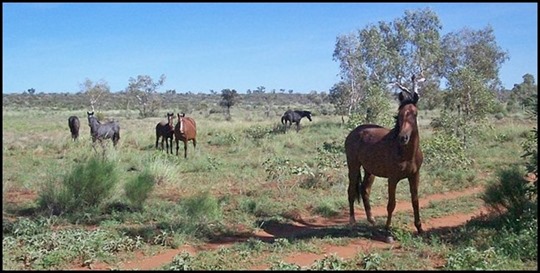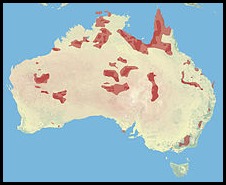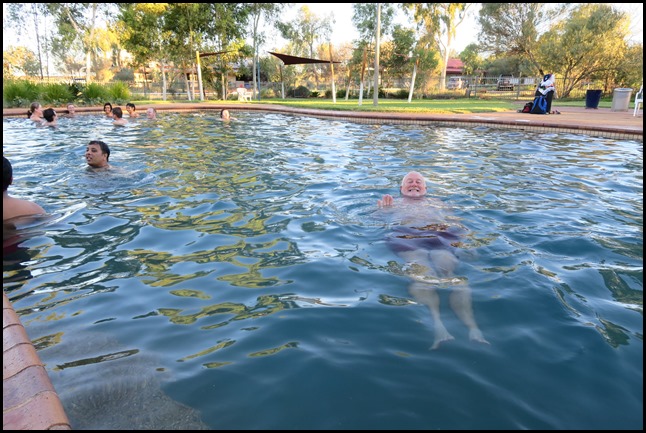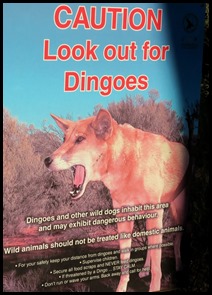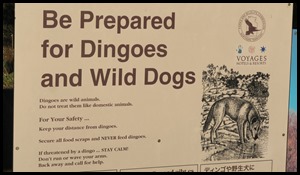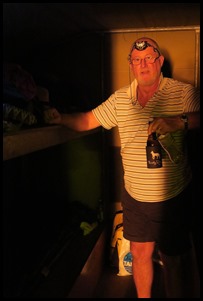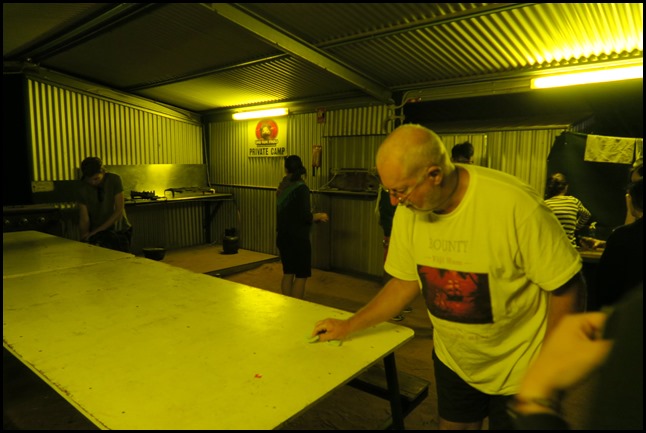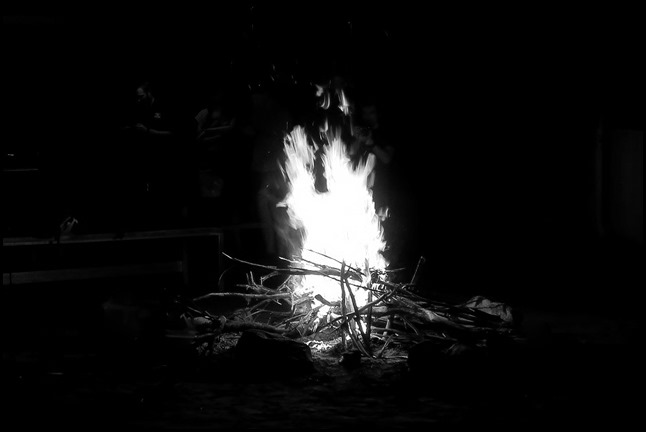Camp Two

|
Camp Two – Kings Canyon
Resort
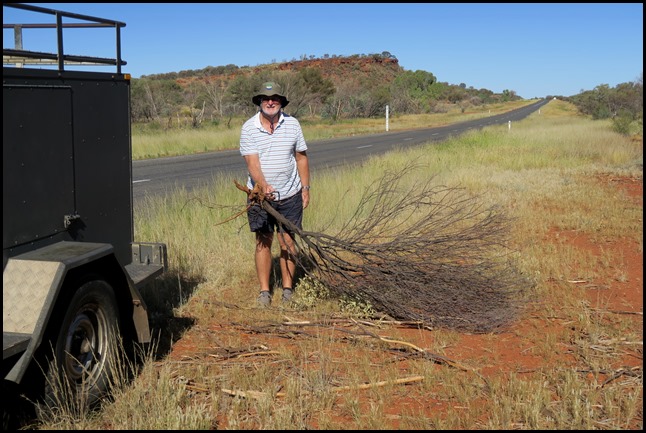 From
Mount Conner Lookout we wended our way toward tonight's camp. Along the way
David asked if we would all like a fire. Yes. Next thing we were stopping on the
roadside to gather wood.
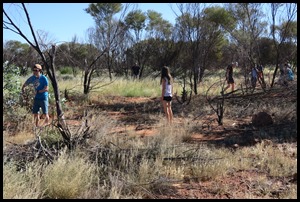 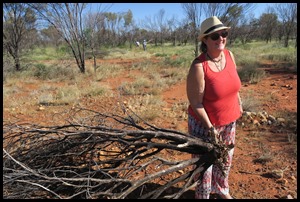 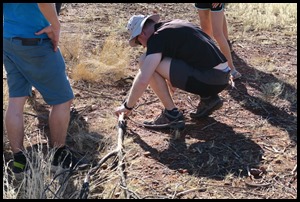 Everyone got stuck in and Arnaud
produced a mini-saw and went at a tree
trunk........
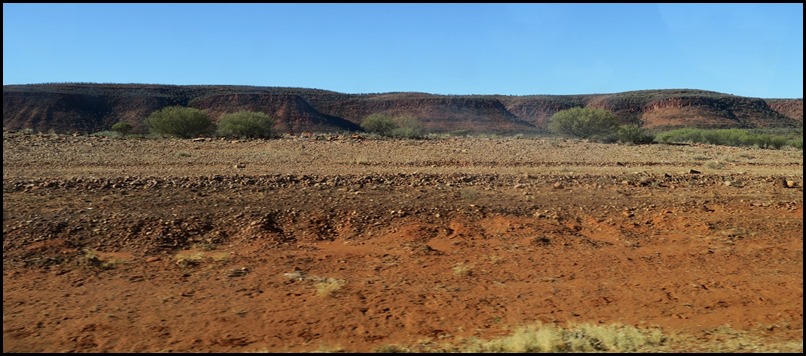 Back
on the road the scenery changed from the really red
to dark orange and brown.
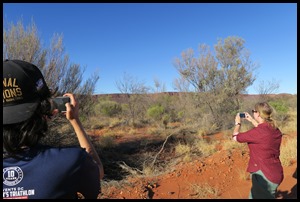 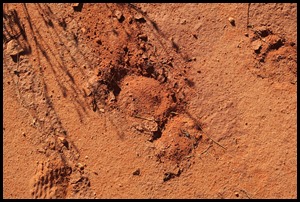 We
were all on the look-out for creatures, someone shouted “horses”, David did a
u-turn and out we all got Snappers and hoof
prints.
Horses first arrived in Australia in 1788 with the First Fleet. They were imported for farm and utility work; recreational riding and racing were not major activities. By 1800, only about 200 horses are thought to have reached Australia. Horse racing became popular around 1810, resulting in an influx of Thoroughbred imports, mostly from England. Roughly 3,500 horses were living in Australia by 1820, and this number had grown to 160,000 by 1850, largely due to natural increase. The long journey by sea from England, Europe, and Asia meant that only the strongest horses survived the trip, making for a particularly healthy and strong Australian stock, which aided in their ability to flourish.
The term Brumby refers to a feral horse in Australia. Its first recorded use in print is in the Australasian magazine from Melbourne in 1880, which said that Brumbies were the bush name in Queensland for 'wild' horses. In 1885, the Once a Month magazine suggested that rumbies was a New South Wales term, and the poet Banjo Paterson stated in the introduction for his poem Brumby's Run published in the Bulletin in 1894 that Brumby was the word for free-roaming horses. Its derivation is obscure, and may have come about from one or more of the following possibilities: 1. Horses left behind by Sergeant James Brumby from his property at Mulgrave Place in New South Wales, when he left for Tasmania in 1804. 2. An Aboriginal word baroomby meaning "wild" in the language of the Pitjara Indigenous Australians on the Warrego and Nogoa Rivers in southern Queensland. 3. A letter in 1896 to the Sydney Morning Herald says that baroombie is the word for horse among the Aboriginal people of the Balonne, Nebine, Warrego and Bulloo Rivers. 4. Baramba, which was the name of a creek and station in the Queensland district of Burnett, established in the 1840’s and later abandoned, leaving many of the horses to escape into the wild. 5. It has also been suggested that the name derives from the Irish word bromach or bromaigh.
Currently, Australia has at least 400,000 horses roaming the continent (in red). It is also estimated that, during non-drought periods, the feral horse population increases at a rate of twenty per cent per year. Drought conditions and brushfires are natural threats. Despite population numbers, feral horses are generally considered to be a moderate pest. Where they are allowed to damage vegetation and cause erosion, the impact on the environment can be detrimental, and for that reason can be considered a serious environmental threat. However, because they also have cultural and potential economic value, the management of Brumbies presents a complex issue.
Next stop was a quick dip at the Kings Canyon Resort, a quick shop for some alcohol, back on the bus and off into the bush.
As we left we saw signs warning us about dingoes, but hey, I have my own bodyguard..... We had the choice of sleeping under the stars again in a swag, or in a tent the size of a garden shed with two sets of bunks. Bunks it was then – our group was small enough for each couple to have their own tent, one for the boys and one for the girls. Whilst we all got settled David prepared a really splendid supper. BBQ kangaroo fillet, sausages, a spicy beef dish, potatoes with a thick cheese topping, hot bread wedges, salad, coleslaw all washed down with our recently acquired drinks.
Everyone got stuck in to washing up, tidying and putting away. Next was ablutions along the track. Five dingoes came to visit but all very timid. The three youngsters from Taiwan opted to sleep under the stars, the rest in tents.
ALL IN ALL A NEARLY PROPER
BED AFTER ANOTHER GREAT DAY
OUT IN THE BUSH – VERY
DARK |
